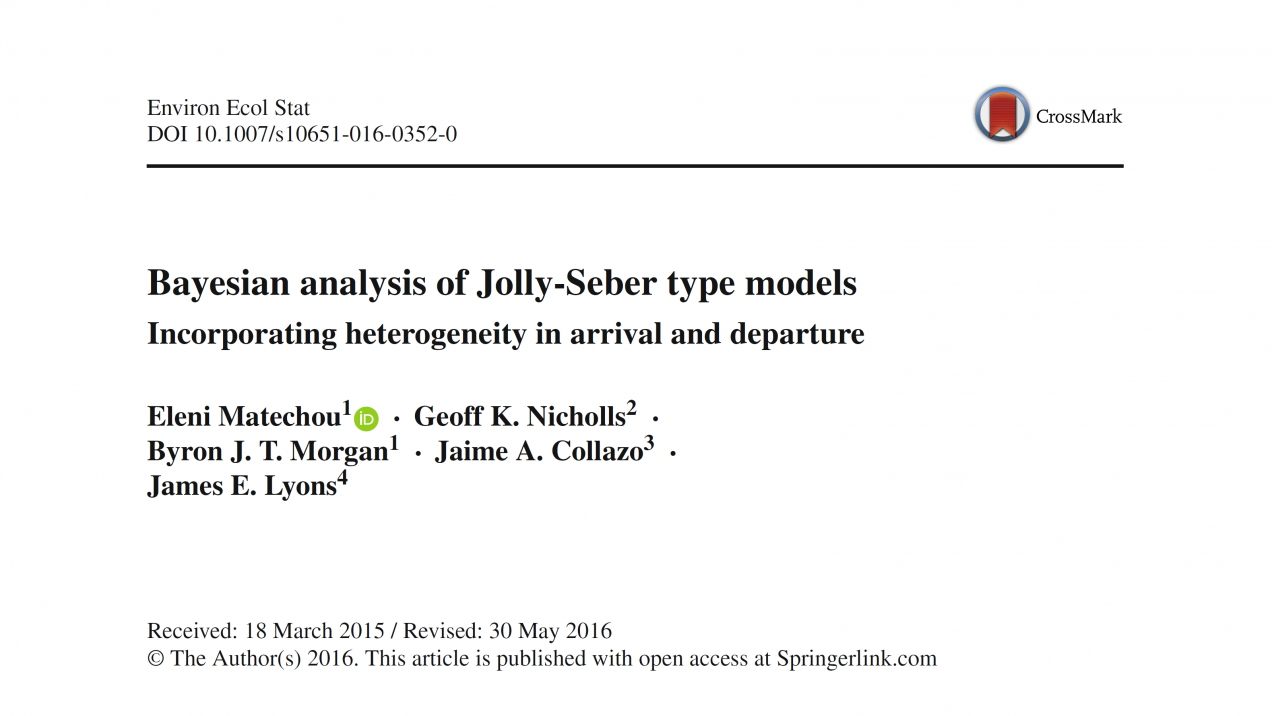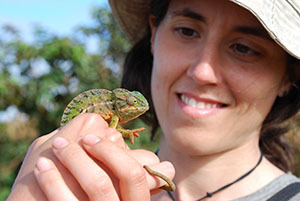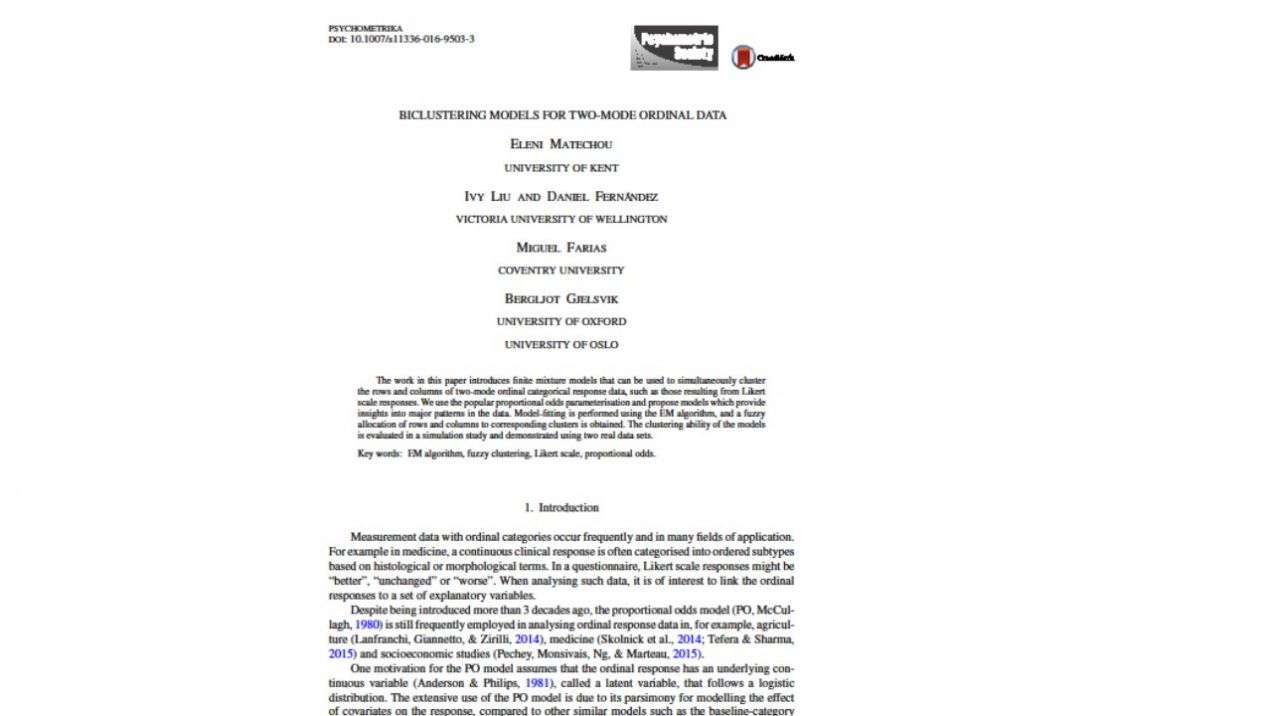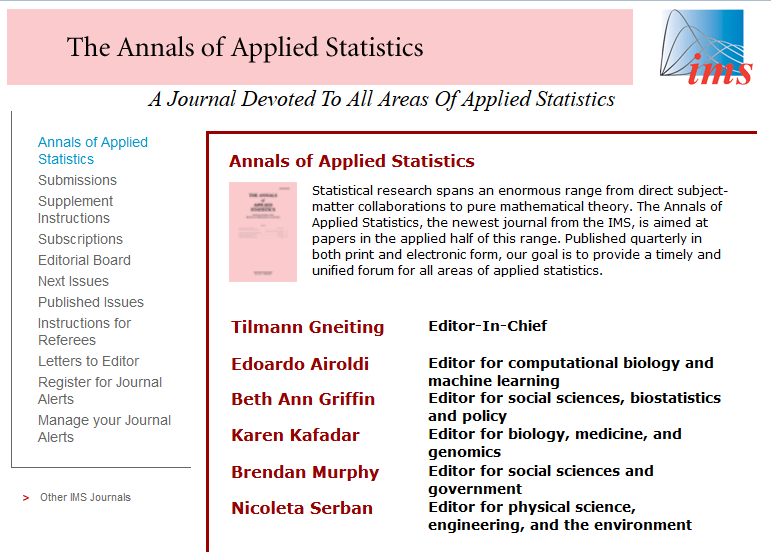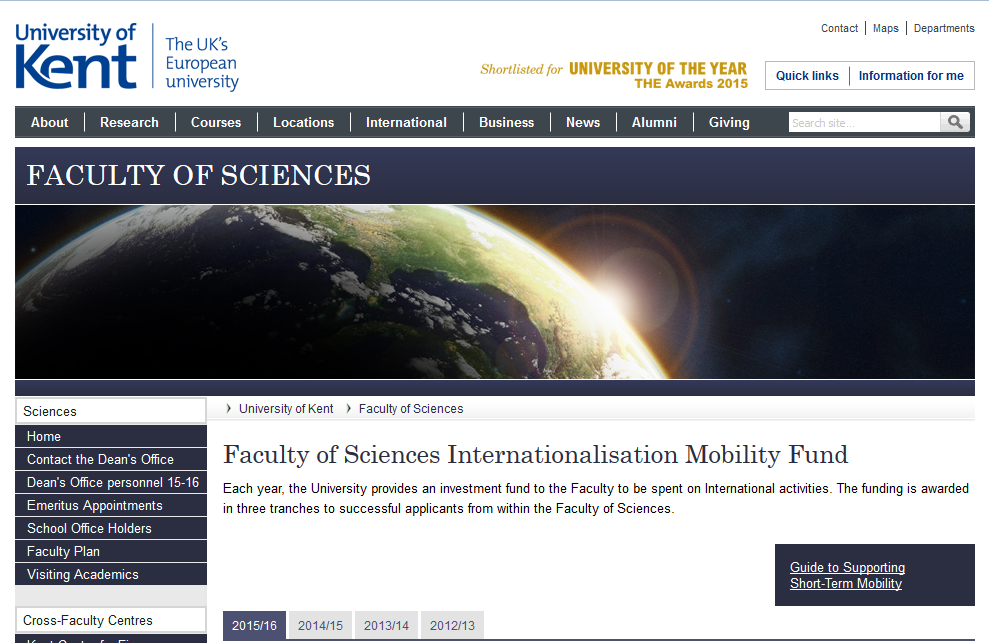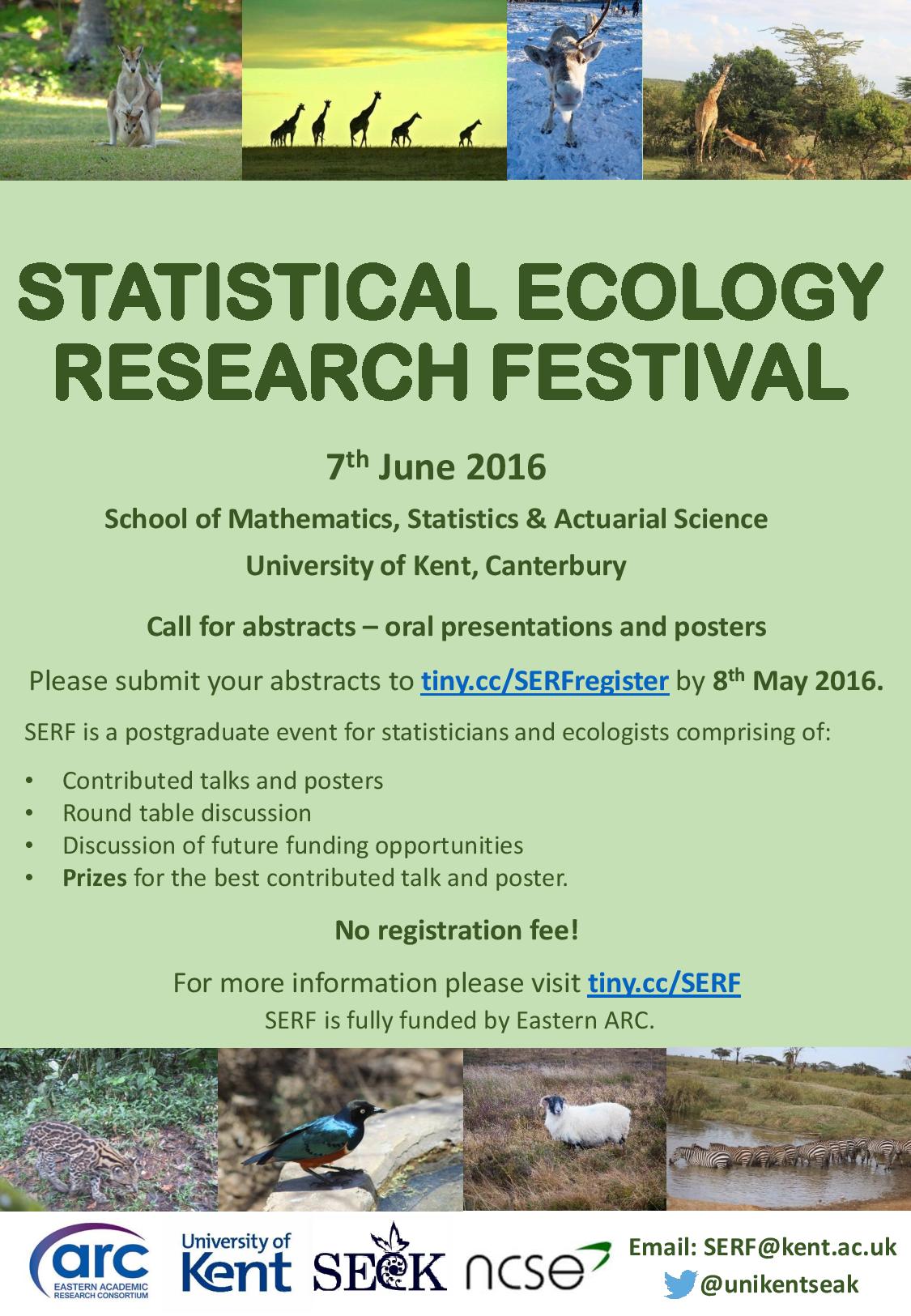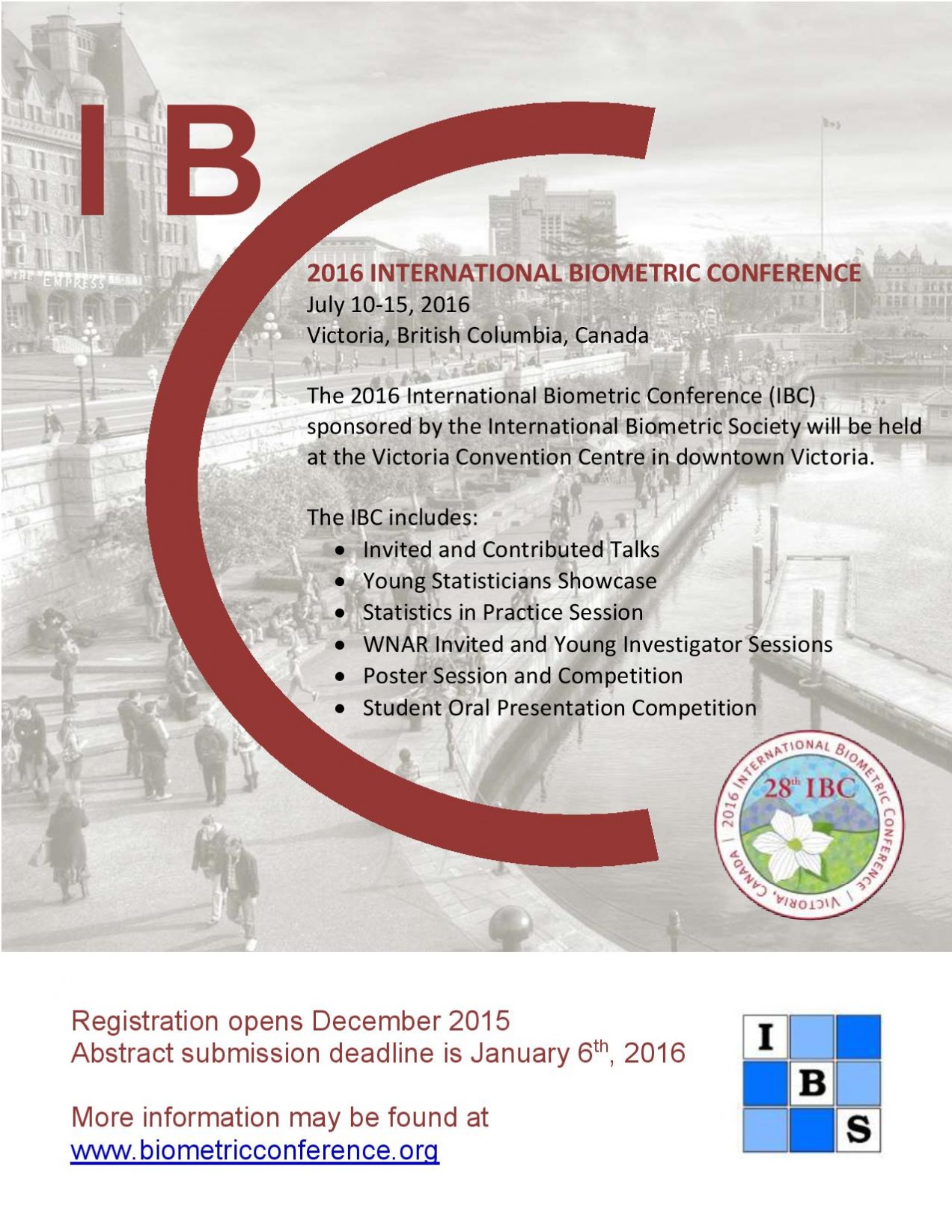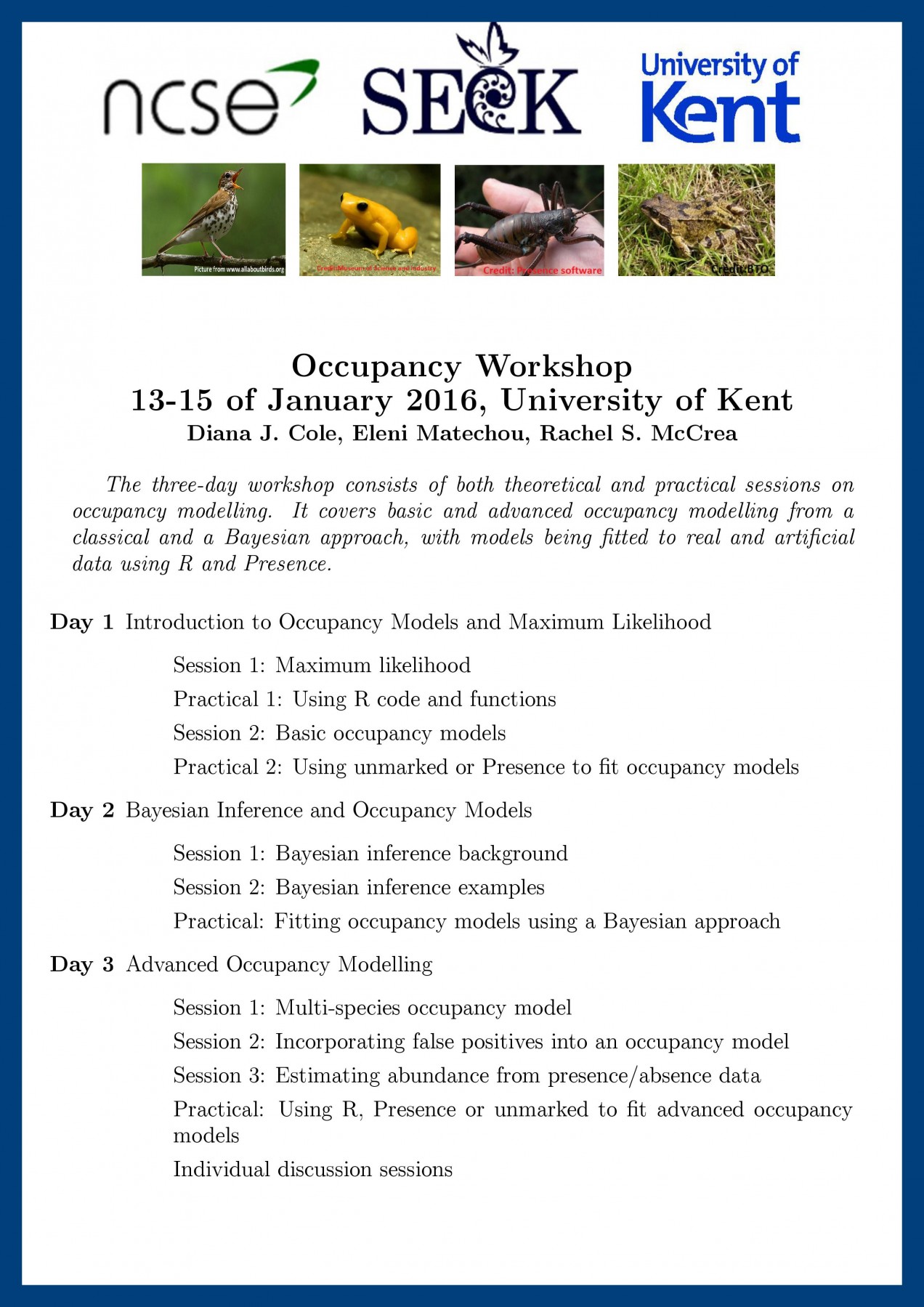The Statistical Ecology Research Festival (SERF) is a one day event for postgraduate students in Statistics and/or Ecology. SERF is a great opportunity for statistics students to learn more about ecological data, how they are collected, what specific questions ecologists are trying to answer by collecting the data and the practical problems that can be encountered in the field. Ecology students will have the chance to learn more about the wide array of statistical techniques used to analyse ecological data, the challenges faced from a statistician’s perspective and emerging areas of statistical research.
SERF will comprise of oral presentations and posters, a round table discussion which will allow attendees to share their research and establish better connections, a discussion on future funding opportunities and a networking reception at the end of the day.
It will be a wonderful opportunity for research postgraduates from both statistical and ecological disciplines to interact with each other and showcase their research. As a result of sharing knowledge among attendees, SERF will generate ideas and approaches for future research in statistical ecology as well as partnerships among participants.
SE@K
We are the Statistical Ecology @Kent (SE@K) group at the School of Mathematics, Statistics & Actuarial Science at University of Kent. We are members of the National Centre for Statistical Ecology (NCSE). SERF is fully funded by Eastern Academic Research Consortium (Eastern ARC) in order to encourage interdisciplinary research.
Submitting an abstract
SERF is open to postgraduate research students/postdocs in statistical ecology or quantitative ecology, but priority will be given to those from Eastern ARC partner institutions (University of Kent, Essex and East Anglia).
Abstracts of no more than 500 words for a talk of 15 minutes including questions must be submitted using the online submission form accompanied by the name of the applicant and their institution and contact details by the 8th May 2016.
The abstracts will be judged on quality, novelty and relevance to SERF. The abstracts selected for oral presentation will be chosen to ensure a wide range of topics are covered during the day. Successful applicants will be notified by the 16th May.
Registration
Registration is free. Lunch and refreshments will be provided free of charge to all participants.
Please note that a limited number of travel expenses (up to £50) are available for presenters whose abstracts were accepted for oral presentations.
Programme for the day
Coming soon…
Location and directions
SERF will take place on the 7th June at the University of Kent in Canterbury. The talks will take place in Cornwallis Octagon Lecture Theatre 3 and the round table discussion and networking in Cornwallis East Seminar Room 2. Both venues are one-minute away from Darwin College bus stop. The link below gives more information on travel and direction. Direction Guidelines
Follow-up material
Presentation slides and posters will be published here. Coming soon…
Contact information
If you have further enquiries, please contact us at SERF@kent.ac.uk

